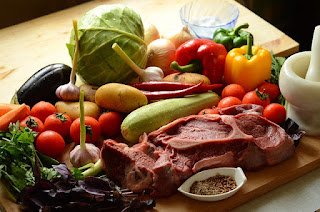What is a Flexitarian Diet and How Can It Benefit You?
Have you heard of the flexitarian diet? It’s a flexible approach to eating that focuses on plant-based foods while allowing occasional meat consumption. Imagine it as a middle ground between strict vegetarianism and a standard omnivorous diet. Let’s dive into what this means and why it might be the right choice for you.
Defining Flexitarian
The term “flexitarian” combines “flexible” and “vegetarian.” Essentially, it’s about making plant-based foods the star of your plate but still enjoying meat or fish from time to time. This diet doesn’t impose strict rules, making it easier to adapt to your lifestyle.
Why Choose a Flexitarian Diet?
1. Health Benefits: Studies have shown that eating more plant-based foods can reduce the risk of chronic diseases like heart disease, diabetes, and certain cancers. At the same time, occasional meat consumption can provide nutrients that some plant-based diets might lack, like vitamin B12 and iron.
2. Environmental Impact: Reducing meat consumption lowers your carbon footprint. The meat industry contributes significantly to greenhouse gas emissions, so cutting back can help combat climate change.
3. Sustainability: By focusing on plant-based foods, you're supporting sustainable agriculture practices that promote soil health and biodiversity.
Real-Life Examples
1. The Mediterranean Diet: This diet emphasizes vegetables, fruits, nuts, and whole grains while including fish and poultry. It’s a form of flexitarian eating that’s been linked to longer life expectancy and better heart health.
2. Meatless Mondays: Many people participate in Meatless Mondays, a movement encouraging one day a week without meat. This practice has gained popularity for its simplicity and significant health and environmental benefits.
How It Fits Into Our Self-Sustainable City Project
In our self-sustainable city project, adopting a flexitarian approach aligns perfectly with our goals. We’re building a community that prioritizes sustainable living, and encouraging a flexitarian diet can complement our green building practices and natural farming methods. By incorporating more plant-based foods into our daily lives, residents can enjoy a healthier lifestyle while reducing their environmental impact.
We’d love to hear your thoughts on the flexitarian diet. Have you tried it or considered it? Share your experiences or ask any questions in the comments below!


No comments:
Post a Comment